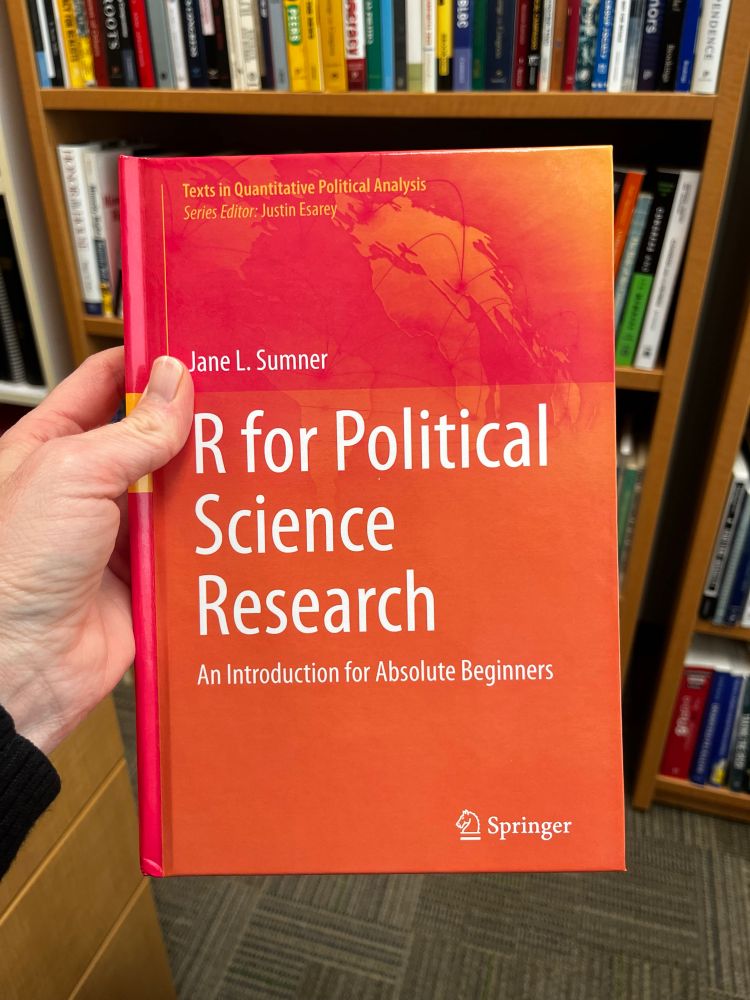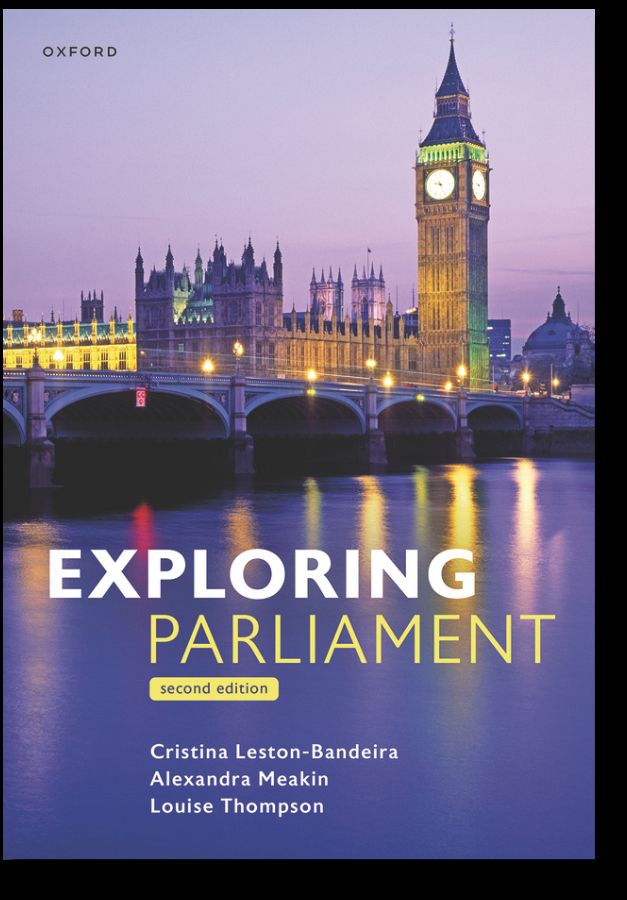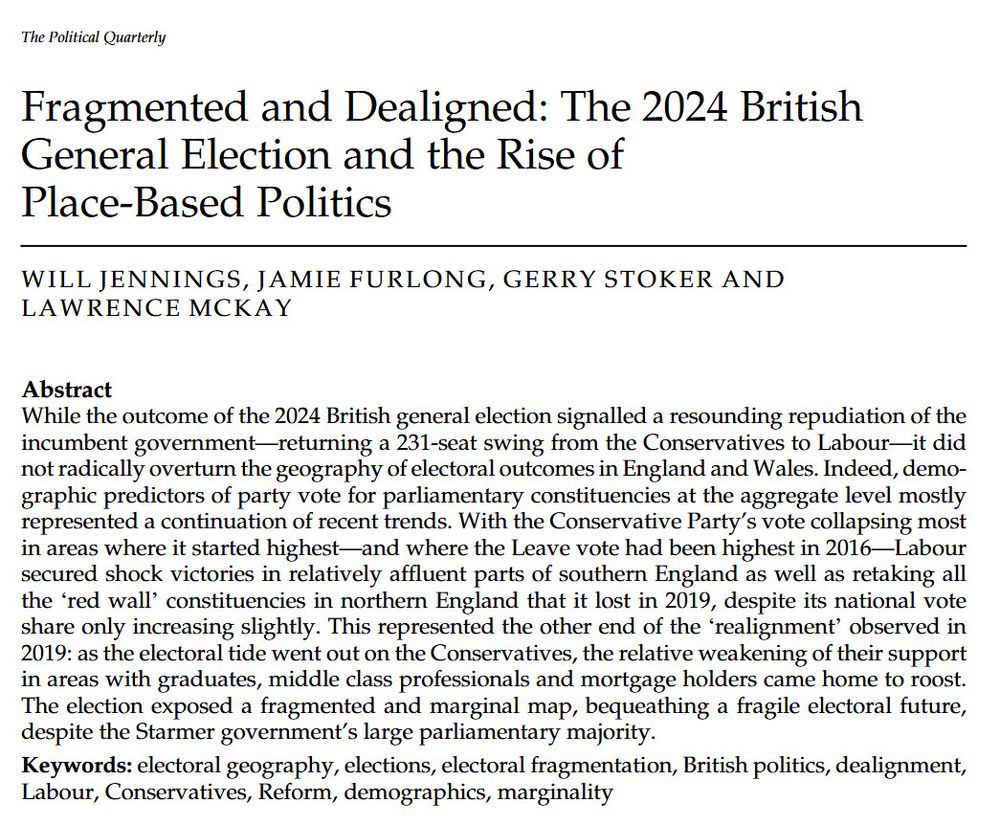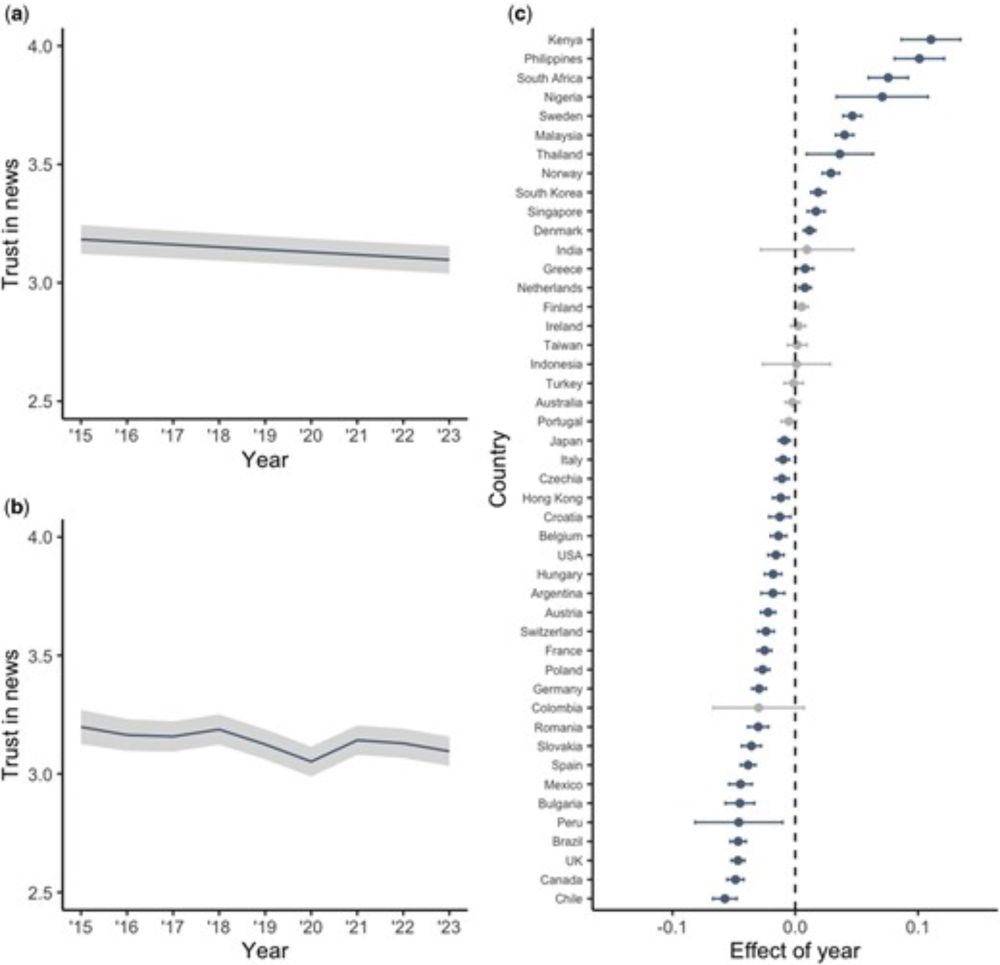
A photo of a book, “R for Political Science Research.”
Just got this in the mail today. Congratulations, Jane Sumner! Can’t wait to this with my students. It looks awesome! The discipline needed this book. 🥳📕
18.04.2025 17:18 — 👍 25 🔁 5 💬 3 📌 0@jamesweinberg1.bsky.social
Senior Lecturer (Associate Professor) in Political Science, University of Sheffield • Author of 'Who Enters Politics and Why?' & 'Governing in an Age of Distrust' • Visiting Fellow, University of New South Wales Website: www.jamesweinberg.co.uk

A photo of a book, “R for Political Science Research.”
Just got this in the mail today. Congratulations, Jane Sumner! Can’t wait to this with my students. It looks awesome! The discipline needed this book. 🥳📕
18.04.2025 17:18 — 👍 25 🔁 5 💬 3 📌 0
The cover of Exploring Parliament Second Edition, showing the Palace of Westminster and Westminster Bridge from across the Thames, at twilight.
So, so proud of this book! It was an honour to be asked by @estrangeirada.bsky.social & @louisevthompson.bsky.social to join the editing team and work with 70+ incredible practitioners & academics who shared their expertise for the benefit of students of Parliament: global.oup.com/ukhe/product... 🧵
25.03.2025 21:13 — 👍 45 🔁 17 💬 1 📌 5
I'm advertising a fully funded PhD to work with me and Prof Kate Dommett on our PODTrust project. Interested in trust, politicians, and the opportunity to study within an international team spread across 4 countries? Check out the ad 👇 Happy to answer any qus
www.jobs.ac.uk/job/DLU746/p...
Politics Live just referring to this poll claiming alarming decline in support for democracy among the young. Except there isn’t. This has now been debunked several times (Mark Pack’s linked post is the most thorough) but the only thing remembered and cited in debate is the original headline.
03.02.2025 12:45 — 👍 244 🔁 138 💬 11 📌 8
'Fragmented and Dealigned: The 2024 British General Election and the Rise of Place-Based Politics'. An article by Will Jennings, Jamie Furlong, Gerry Stoker, and Lawrence Mckay in The Political Quarterlly. Abstract While the outcome of the 2024 British general election signalled a resounding repudiation of the incumbent government—returning a 231-seat swing from the Conservatives to Labour—it did not radically overturn the geography of electoral outcomes in England and Wales. Indeed, demographic predictors of party vote for parliamentary constituencies at the aggregate level mostly represented a continuation of recent trends. With the Conservative Party's vote collapsing most in areas where it started highest—and where the Leave vote had been highest in 2016—Labour secured shock victories in relatively affluent parts of southern England as well as retaking all the ‘red wall’ constituencies in northern England that it lost in 2019, despite its national vote share only increasing slightly. This represented the other end of the ‘realignment’ observed in 2019: as the electoral tide went out on the Conservatives, the relative weakening of their support in areas with graduates, middle class professionals and mortgage holders came home to roost. The election exposed a fragmented and marginal map, bequeathing a fragile electoral future, despite the Starmer government's large parliamentary majority.
Our analysis of the geography of GE2024 is now out in
@politicalquarterly.bsky.social. This offers an important update of The Changing Electoral Map of England and Wales by @jwfurlong.bsky.social and me, published by OUP just ahead of the election. onlinelibrary.wiley.com/doi/10.1111/...
This matters for many reasons, not least because there is a bunch of evidence that the social class (of which education is a proxy) of politicians and the cabinet matters for actual outcomes 🧵
29.11.2024 15:35 — 👍 25 🔁 13 💬 2 📌 0
Interested in political trust, politicians, digital politics and/or experiments? Come work with me, Kate Dommett and a great team of international collaborators on our three-year Trans-Atlantic Partnership grant 👇
Happy to chat with anyone who's interested.
www.jobs.ac.uk/job/DKT576/r...

New article in Journal of Communication looking at changes to trust in news across 46 countries in the last 10 years.
Trust in news declined in just over half of countries.
It decreased more in countries where TV news use has declined, and/or where social media news use has grown.
A thread:

Hello BlueSky!
If you'd like to know a bit more about what I do, then this talk in the Australian Parliament gives a good overview of some of my recent research on trust and political leadership (👇).
www.aph.gov.au/About_Parlia...
Thanks for connecting!